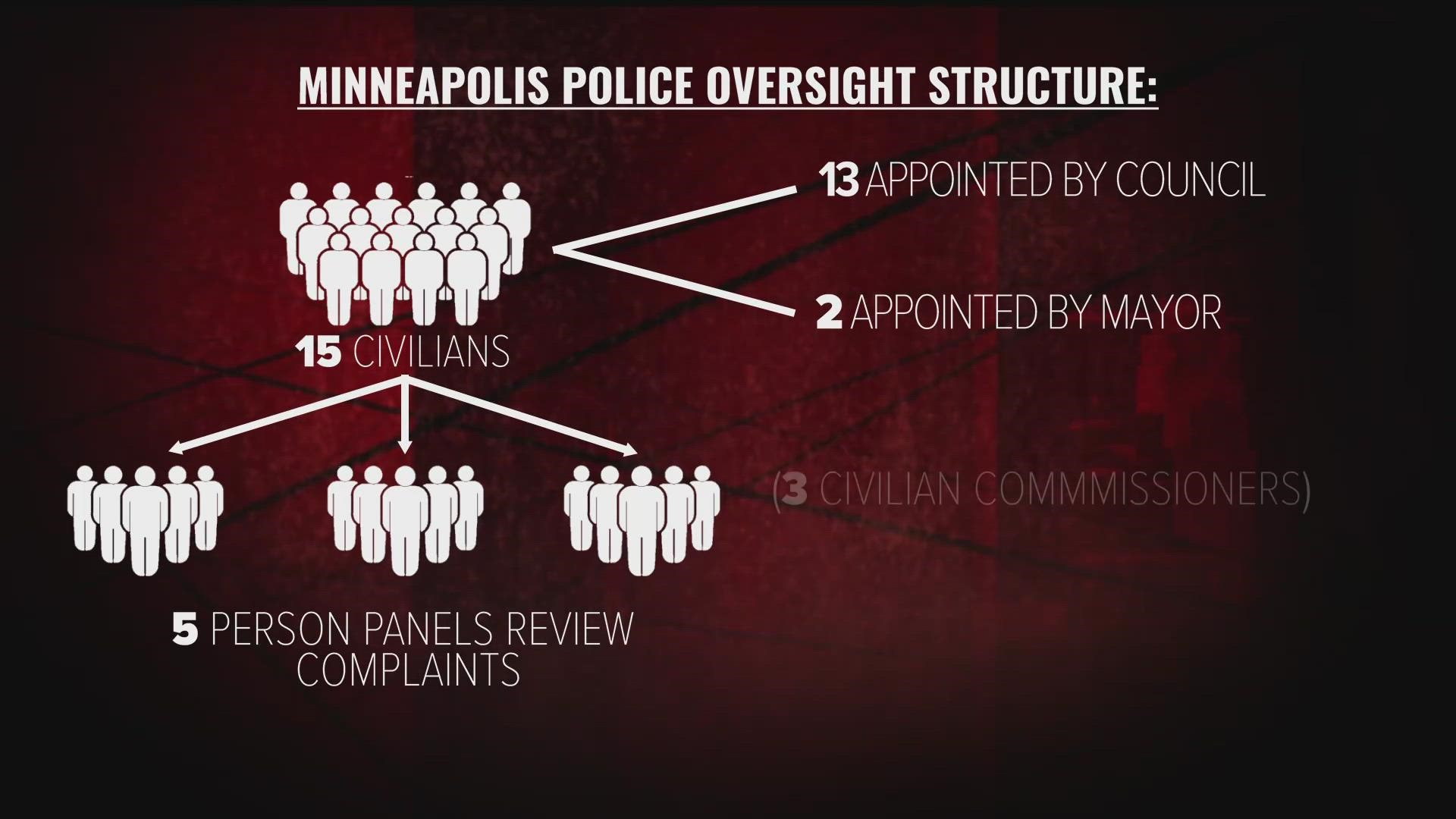MINNEAPOLIS — This spring, the city of Minneapolis will implement a new system of police oversight.
Whether it will work depends on whom you ask.
The director of the city's Civil Rights Department calls it a "significant step forward" for transparency and accountability within the Minneapolis Police Department. Council President Andrea Jenkins says it's a good start, while other council members and community activists argue it lacks the power to create any real change.
Like it or not, the 15-member Community Commission on Police Oversight (CCPO) will take effect in mid-April, 120 days after the Minneapolis City Council passed an ordinance in December to establish the new agency. This will be the third generation of police oversight in Minneapolis, following the Civilian Review Authority that operated in various forms from 1990 to 2012 and the Office of Police Conduct Review that has been in place since then.
In a scathing report issued after the murder of George Floyd, the Minnesota Department of Human Rights called the current system "insufficient and ineffective at holding officers accountable," as evidenced by the more than 20 complaints that had been lodged against Derek Chauvin dating back to 2001.
The newest commission will streamline the work of multiple groups within the current system, giving the 15 civilian members oversight committee responsibility of broader MPD policies and practices and the ability to review specific complaints against police officers. Thirteen of the 15 civilians will be appointed by the city council -- one for each ward -- and the two others will be appointed by the mayor.
During the complaint process, smaller panels of five will review cases and make recommendations to the chief of police, although the chief is not bound to those findings. The panels will consist of three CCPO members and two sworn MPD officers.
"I think we have gotten to a really good place," Council President Andrea Jenkins said after the final vote in December, following hours of back-and-forth about various amendments and disagreements. "Is it perfect? No? Can it be improved? Absolutely, as would everything in life. It is our duty to make that happen."
Several community and activist groups have opposed the new police oversight structure, including Communities United Against Police Brutality. Dave Bicking, a board member with CUAPB and former member of the old Civilian Review Authority, said the new system is "not enough of a change" and does not have enough authority.
"We need a real civilian review agency," Bicking said. "I don't think any sworn police officer should be in that group that looks at the merits of the case."
If the five-person panel recommends discipline against an officer to the police chief, the chief can send the case back to them for 15 days of "additional investigation." Otherwise, the chief has 30 days to act on the recommendation, but state law gives the ultimate decision-making power to MPD -- not the civilian review commission.
David Harris, a University of Pittsburgh Law professor and national expert on police accountability, said that the new Minneapolis oversight structure seems "fairly typical" compared to others across the country. According to some estimates, roughly 200 U.S. cities have some form of police oversight, although since the murder of George Floyd many local elected leaders have started taking a harder look at their systems.
"These things continue to be part of the landscape," Harris said. "People who view oversight as important want it to be more effective. You have a lot of these boards, and a lot of them fail. The reason they fail is because they don't have the tools that they need and the structure they need in order to succeed."
In Chicago, a revamped system will let voters directly elect district committee members that then appoint a commission to oversee Chicago Police. Baltimore and Philadelphia have also moved in recent months to add more investigatory power to their civilian review boards.
Following the Memphis police brutality case, Harris said he thinks many of the existing boards across the country will "be looked at very seriously, to see if they have the power they need, and the structure they need, in order to do a real job."
"Unfortunately, a lot of police agencies and city governments don't see the good in independent civilian review. They see it as interference by people who don't understand law enforcement," Harris said. "What it really is, is citizens having a say, and that's an appropriate thing for any government in a democracy."
Watch more local news:
Watch the latest local news from the Twin Cities in our YouTube playlist:

